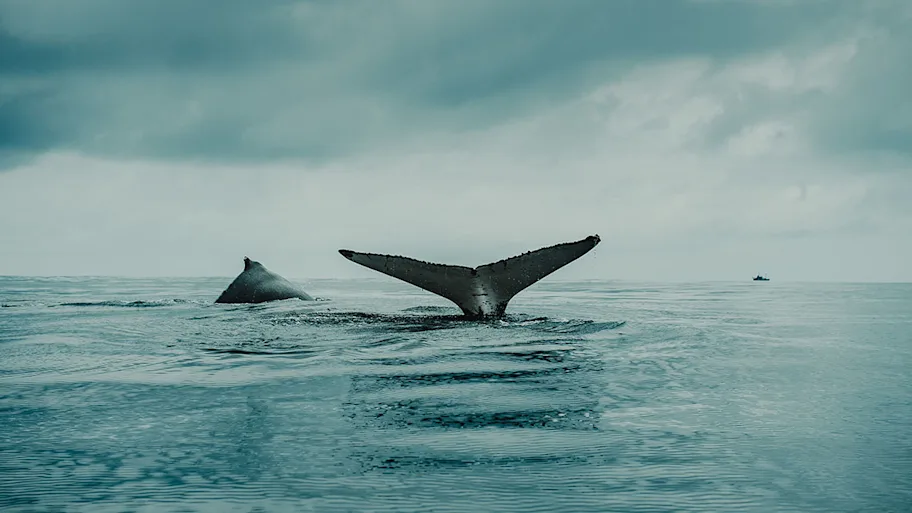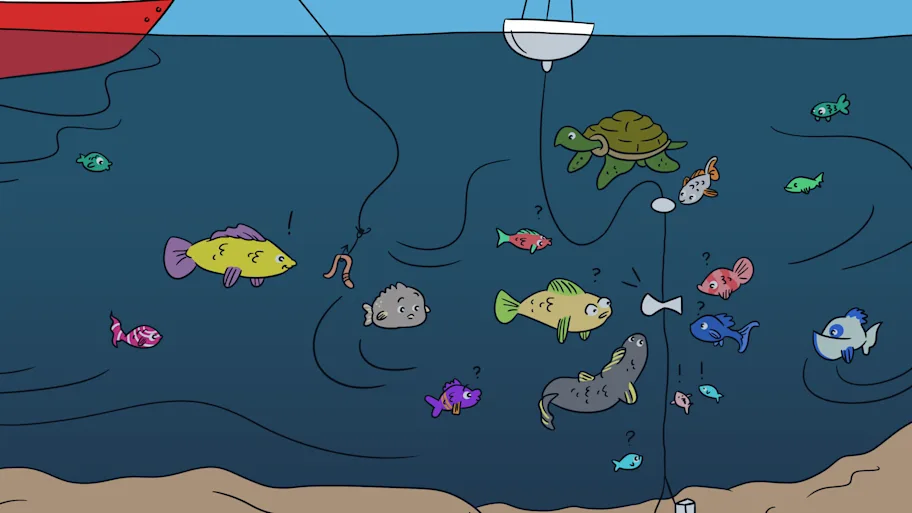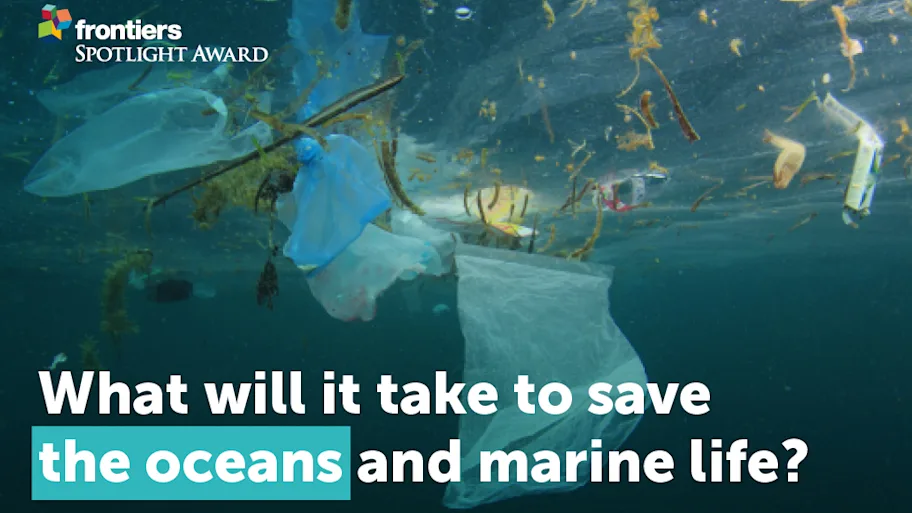
- Science news
- Life sciences
- The World’s Oceans are in Crisis but the First UN Meeting on Oceans Brings Hope
The World’s Oceans are in Crisis but the First UN Meeting on Oceans Brings Hope

Sardines fish shoal in ocean
— By Nina Hall, Journal Development Manager Frontiers in Marine Science
Three billion people rely on seafood as their primary source of protein; about 70% of the air that we breathe is produced by marine plants and 97% of the Earth’s water is contained in the oceans. It is the biggest regulator of the planet’s climate, making the earth a very comfy home for humans. And yet, the world’s oceans are choking in plastic, are fished to depletion and warming waters melt ice caps, threatening marine life.
The good news is that the oceans have finally made it into the headlines. The world is waking up to their importance for the survival of our species. From June 5-9, the UN is hosting its first ocean conference to support the implementation of Sustainable Development Goal (SDG) 14: conserve and sustainably use the oceans, seas and marine resources for sustainable development (https://oceanconference.un.org). Not since the 1982 passing of the Law of the Sea have so many heads of state convened to discuss the future of the world’s oceans, including their impacts on economic growth, human health, and the achievement of the SDGs.
And the uptake looks promising. Advances in technology have produced more comprehensive and detailed scientific data creating stronger incentives to take care of the oceans. For example, we now know that giving fish stocks time to recover allows populations to remain stable, securing the future of both fish and fisherman. We also know that saturating the oceans with plastic threatens marine life, impacting the amount of seafood we can extract and affecting our health when we ingest toxic chemicals through the fish we consume (plasticoceans.org). The trick lies in implementing what we know across sectors and countries. How do we regulate the fishing industry on the high seas? How do we remove the millions of tons of plastic from the ocean and how do we regulate recycling on land?
The recognition of the problem at the UN level is an important first step to finding answers and pushing for action. Not only governments are catching up but the private sector is increasingly investing in new sustainable technologies. In 2016, the World Economic Forum, the Ellen MacArthur Foundation and McKinsey & Company published a report on The New Plastics Economy – Rethinking the future of plastics. It is set up as a global initiative which aims to accelerate business-driven innovations and helps scale the circular economy, the latter being one of the main drivers for a societal mindset change towards sustainability. During the UN meeting on the oceans itself, 50 major fishing companies, retailers and associated businesses announced the Tuna 2020 Traceability Declaration, which aims to stop illegal tuna from coming to market as well as associated forced labor on the high seas.
Individuals, too, can make a difference as a top-down approach is often too slow and driven by short-term solutions, which patch up a wound but do not treat the underlying illness. For better or worse, it’s true that power often lies with the people. Driving change from the bottom up can be the fastest way to take action in our consumer-driven society. As individuals, we can avoid single-use disposable plastics, like shopping bags, plastic bottles, coffee pods, plastic forks, and so on. We can eat just a little less fish and meat to give the oceans and our climate a breather. Companies will react to consumers’ choices, which drives innovation resulting in more sustainable products.
Implementing global strategies to keep the oceans healthy is, of course, the most complex and colossal of tasks, reflecting the immense size and huge influence that the seas have on our planet. Therefore, we need to tackle the challenge from all sides. There is not one miracle idea, which will get us out of the woods, but rather a myriad of integrated and equally important solutions. We know what the problems are, and, in many cases, we even know what the solutions look like, so now is the time to act. The oceans belong to all of us and we can all make a difference. Happy World Ocean Day!
Frontiers in Marine Science is a proud sponsor of World Oceans Day!
Check out our related Research Topics on:
The Pathway to Solutions: New Frontiers in Climate Change Adaptation & Mitigation






